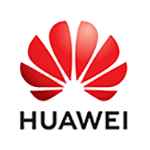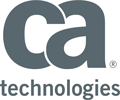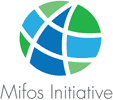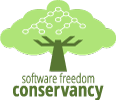With the help of open source frameworks, AI is taking software development to a new dimension. How can we utilize data within that development to create smarter “things” and gain insight via machine and deep learning? As AI makes its way throughout industries, hear best practices and ideas on how to create next generation software and businesses outcomes.
9:00am–12:30pm Monday, July 16, 2018
Location: Portland 251/252
Level: Intermediate
Josh Gordon leads a friendly introduction to deep learning, covering computer vision, natural language processing, and structured data classification. You'll learn how to use TensorFlow—the world’s most popular open source machine learning library—preview the latest APIs, explore best practices, and discover the resources that will help you continue learning.
Read more.
9:00am–12:30pm Tuesday, July 17, 2018
Level: Intermediate
Simon Corston-Oliver offers an introduction to deep learning in Python using Apache MXNet. Starting with deep learning fundamentals, Simon then walks you through training and evaluating a model and explores advanced topics such as training on multiple GPUs.
Read more.
1:30pm–5:00pm Tuesday, July 17, 2018
Level: Beginner
Join Jonathon Manning, Tim Nugent, and Paris Buttfield-Addison to get up to speed with the new machine learning features of iOS and learn how to apply the Vision and Core ML frameworks to solve practical problems in object detection, face recognition, and more. These frameworks run on-device, so they work quickly with no network access, making them cost effective and user-privacy conscious.
Read more.
1:30pm–5:00pm Tuesday, July 17, 2018
Level: Intermediate
OpenCV (the Open Source Computer Vision Library) version 4.0 is being released this summer. Gary Bradski, Anna Petrovicheva, and Satya Mallick offer an overview of OpenCV and explain where it is going. Along the way, you'll learn how to program some fun things that can be used for art, robotics, drones, film, and photography.
Read more.
11:00am–11:40am Wednesday, July 18, 2018
Level: Intermediate
Laurie Hannon introduces you to Mycroft, an open source virtual assistant similar to Siri, Alexa, and the Google Assistant. Laurie explains what it takes to code your own custom skill for Mycroft and details how Microsoft’s open source Bot Framework can be used for cross-platform chatbots.
Read more.
11:50am–12:30pm Wednesday, July 18, 2018
Level: Intermediate
Your continuous integration process produces torrents of data. Joseph Gregorio explains how to mine that data to drive improvements in your development process and offers an overview of Skia—an open source 2D graphics library that provides common APIs that work across a variety of hardware and software platforms.
Read more.
1:45pm–2:25pm Wednesday, July 18, 2018
Level: Beginner
Earlier this year, Amazon, Facebook, and Microsoft partnered to help advance AI by creating ONNX (the Open Neural Network Exchange)—an open format to represent deep learning models. Sarah Bird offers an overview of the ONNX framework and explains how it can help you take AI from research to reality as quickly as possible.
Read more.
2:35pm–3:15pm Wednesday, July 18, 2018
Level: Intermediate
TensorFlow is all kinds of fancy, from helping startups raising their series A in Silicon Valley to detecting if something is a cat. Holden Karau details how to use TensorFlow in conjunction with Apache Spark, Flink, and Beam to create a full machine learning pipeline.
Read more.
4:15pm–4:55pm Wednesday, July 18, 2018
Level: Intermediate
What happens when we apply the latest neural network-based analysis to the nine million patents and patent applications that people have submitted to the USPTO? We don't just learn new things about what people have invented. As Van Lindberg explains, we might also be able to get the computer to do a little "inventing" itself.
Read more.
5:05pm–5:45pm Wednesday, July 18, 2018
Level: Beginner
Ryan Vanderwerf and Lee Fox offer an overview of GalecinoCar, a 1/16-scale self-driving car built using Grails team's new microservice framework. This is a port of DonkeyCar, a Python-based project using Java and Groovy presented at re:Invent 2017.
Read more.
11:00am–11:40am Thursday, July 19, 2018
Level: Beginner
Kubernetes has quickly become the hybrid solution for deploying complicated workloads anywhere. Recently, customers have begun to move complex workloads to the platform, taking advantage of rich APIs, reliability, and performance. Nilesh Patel explains how to use Kubernetes as a platform to run machine learning apps, using Kubeflow, a new open source project launched by Google.
Read more.
11:50am–12:30pm Thursday, July 19, 2018
Level: Intermediate
In the wake of the financial crisis, Thomson Reuters released a novel text-mining-based credit risk model to assess the default risk of publicly traded companies by quantitatively analyzing text. Six years later, the company is updating it to use deep learning. Ryan Roser discusses the benefits and trade-offs involved in transitioning existing analytics to use deep learning.
Read more.
1:45pm–2:25pm Thursday, July 19, 2018
Level: Beginner
Facial recognition technology could revolutionize the world as we know it, and it's already increasingly a part of our everyday lives. Wherever you go, you're being watched, and facial recognition is being integrated with social media, security, gaming, and commerce. Kesha Williams explores facial recognition and explains how to integrate it into your applications.
Read more.
2:35pm–3:15pm Thursday, July 19, 2018
Level: Beginner
Cullen Taylor offers an overview of the open source application Rotisserie, which applies the concept of the red zone in American football to the popular online battle royal game PlayerUnknown's Battlegrounds (PUBG) with the goal of always viewing the most popular PUBG Twitch stream with the least amount of people alive in game.
Read more.
4:15pm–4:55pm Thursday, July 19, 2018
Level: Beginner
Rob Reilly explains how he brought Hedley, his robotic skull, to life. Hedley uses a JeVois smart machine vision sensor and artificial intelligence algorithms (developed by Laurent Itti) to track subjects as they move around in the skull's field of view. Come meet Hedley and learn about the latest developments in open source sensors, AI algorithms, and Linux-based physical computing.
Read more.
5:05pm–5:45pm Thursday, July 19, 2018
Level: Intermediate
Richa Khandelwal explores where engineering fits in machine learning land and shares software engineering and DevOps practices that help in taking a machine learning-powered end-user experience from inception to production.
Read more.
 Joshua Gordon (Google)
Joshua Gordon (Google)
 Simon Corston-Oliver (AWS)
Simon Corston-Oliver (AWS)
 Laurie Hannon (SoftSource Consulting)
Laurie Hannon (SoftSource Consulting)
 Joseph Gregorio (Google)
Joseph Gregorio (Google)
 Sarah Bird (Facebook)
Sarah Bird (Facebook)
 Holden Karau (Independent)
Holden Karau (Independent)
 Van Lindberg (Python Software Foundation)
Van Lindberg (Python Software Foundation)
 Nilesh Patel (IBM )
Nilesh Patel (IBM )
 Ryan Roser (Refinitiv)
Ryan Roser (Refinitiv)
 Kesha Williams (Chick-fil-A Corporate)
Kesha Williams (Chick-fil-A Corporate)
 Cullen Taylor (IBM)
Cullen Taylor (IBM)
 Rob Reilly (Rob "drtorq" Reilly)
Rob Reilly (Rob "drtorq" Reilly)
 Richa Khandelwal (Nike)
Richa Khandelwal (Nike)




























